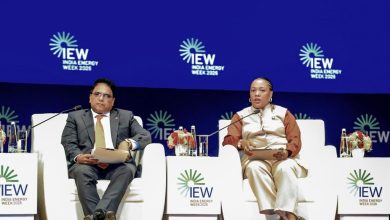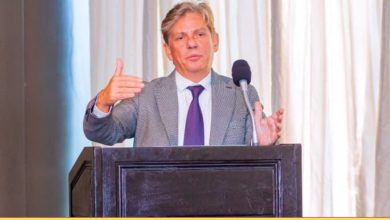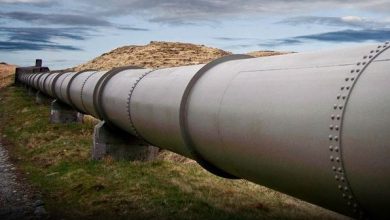Piped bulk LPG to transform ferry market

DAR ES SALAAM: IN a milestone move to expand access to clean cooking energy, the popular Ferry Fish Market in Dar es Salaam has entered a new chapter with the introduction of piped bulk Liquefied Petroleum Gas (LPG).
The modern system, launched yesterday, is set to serve food vendors and fish fryers at the market, marking a significant step in the city’s transition to clean energy.
The project, implemented jointly between the Oryx Energies Tanzania and the city authorities, represents the first of its kind in the country, where bulk LPG is piped directly to cooking stations through a safe and efficient network of underground tanks and meters.
The system marks a significant step in the government’s wider efforts to shift the nation away from charcoal and firewood towards affordable, reliable and environmentally friendly alternatives.
Dar es Salaam Regional Commissioner, Mr Albert Chalamila, who officiated the launch, described the project as “more than infrastructure, it is a transformation in safety, efficiency and the wellbeing of every trader at the market.”
He noted that over 48 stoves have already been connected, each fitted with emergency valves to ensure the highest standards of safety.
“This project has removed the old burden of carrying and refilling small gas cylinders which were costly, unsafe and unsustainable for large-scale daily cooking,” Mr Chalamila said.
The economic impact is already proving tangible. Traders who previously spent up to 180,000/- per day to refill multiple cylinders now save as much as 45,000/- daily through the pay-as-you-use system, comparable to TANESCO’s LUKU electricity metres.
The direct piped supply guarantees uninterrupted cooking operations, reduces wastage from partially used cylinders and gives traders the ability to plan their budgets with greater certainty.
The LPG is stored in large underground tanks and distributed via a modern pipeline system that ensures a steady, safe flow of energy.
Each cooking point is fitted with individual metres and automated safety valves that shut off the gas instantly in case of a leak or emergency. Fire extinguishers and emergency response procedures have also been embedded within the design.
Oryx Energies Tanzania’s Managing Director, Mr Benoit Araman, said the project is not only a technological advancement but also a commitment to supporting communities and protecting the environment.
“By reducing reliance on charcoal and kerosene, this system lowers carbon emissions while providing food vendors with a cleaner, healthier working environment. We have introduced a Pay-As-You-Go model that makes access flexible and affordable, ensuring traders only pay for the gas they consume,” he explained.
According to Caroline Msokwa, Oryx’s Head of Sales for Large Gas Users, the system was developed after detailed studies revealed that small cylinder use was financially draining and posed safety concerns. “Now every stove has its own metre and traders can top up units at 2,900/- each.
This convenience is a game-changer for small and medium food businesses,” she said.
Ilala Member of Parliament, Mussa Azzan Zungu, noted that studies show a woman cooking with charcoal inhales smoke equivalent to smoking 300 cigarettes a day, posing severe risks of respiratory illness. “By embracing clean cooking, we are not only protecting the environment but also saving lives,” he said.
The Ferry Market LPG project directly supports the government’s National Clean Cooking Energy Strategy 2024–2034, which targets at least 80 per cent of Tanzanians using clean energy by 2030.
Energy Commissioner at the Ministry of Energy, Mr Innocent Luoga, hailed the initiative as a model for publicprivate partnership in energy transition. “Oryx has shown how innovation and investment can solve community challenges while supporting government policy. We expect this model to be replicated in schools, health centres, markets and institutions countrywide,” he said.
Ilala District Commissioner, Edward Mpogolo, said reducing energy costs for traders strengthens the entire value chain, from fishermen to retailers.
“By cutting daily cooking expenses and improving safety, we are empowering the traders who feed this city. This is in line with the President’s directive to promote clean energy and support micro and small enterprises,” he emphasised.




